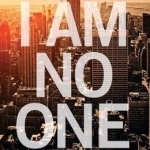The Gender of Crime
Dana M. Britton, Shannon K. Jacobsen and Grace Howard
Book
The Gender of Crime introduces readers to how gender shapes our understanding of every aspect of...
The Medicalization of Incest and Abuse: Biomedical and Indigenous Perceptions in Rural Bolivia
Book
Combining biomedical, psychological, and anthropological approaches to intergenerational incestuous...
The Social Determinants of Health: Looking Upstream
Book
This timely book takes seriously the idea of understanding how our social world not individual...

Mapping Precariousness, Labour Insecurity and Uncertain Livelihoods: Subjectivities and Resistance
Arianna Bove, Emiliana Armano and Annalisa Murgia
Book
The condition of precariousness not only provides insights into a segment of the world of work or of...

Statistical Analysis of Questionnaires: A Unified Approach Based on R and Stata
Francesco Bartolucci, Silvia Bacci and Michela Gnaldi
Book
Statistical Analysis of Questionnaires: A Unified Approach Based on R and Stata presents special...
Changing Youth Values in Southeast Europe: Beyond Ethnicity
Book
What shapes the cultural, political and ideological values of young people living in Southeastern...

The Essential Guide to Critical Development Studies
Book
In recent years, much mainstream development discourse has sought to co-opt and neutralize key...
Regulating the Lives of Women: Social Welfare Policy from Colonial Times to the Present
Book
Widely praised as an outstanding contribution to social welfare and feminist scholarship, Regulating...
Mayhawke (97 KP) rated I am No One in Books
Feb 13, 2018
O'Keefe is a difficult character to really sympathise with. Whilst his ideology is admirably egalitarian he falls into that bracket of slightly stuffy, middle-class liberals who take themselves too seriously and fail to practise what they preach. In fairness to O'Keefe he largely has the grace and self-awareness to question the rationality of his fears and accidental moments of prejudice (though he is of the very typical male Liberal variety that doesn't seem to recognise the contradiction of professing himself feminist whilst watching porn): slightly pompous, slightly too much self-regard slightly too much sense of victimhood, he is not unlikeable just a bit of a non-entity. Whilst this is clearly intentional it makes his narrative stodgy. Not unreadable, but at the same time easy to put down for a week whilst a more engaging book is read. This is either a spectacularly adept piece of characterisation or an unfortunate reflection of the author, Patrick Flanery. I do hope it is the writing because if not then all the peculiar, inaccurate and unlikely observations made by O'Keefe onbehalf of his character regarding differences between the British and Americans are likely also Flanery's:. For example the breath-taking assertion that socio-economic failure is treated more harshly in the UK than in the US, when any basic knowledge of sociology in the two countries shows that the criteria for failure is a) much broader in the US and b) responded to far more harshly, e.g.: "if you don't earn enough from your three jobs to afford medical insurance to pay for your cancer treatment, you clearly haven't worked hard enough. The fault is yours , you are a failure and the punishment is premature death.". It is also difficult to accept that Flanery is regularly treated with distrust and dislike by bank cashiers for his Irish name. Quite aside from anything else most bank cashiers in this country now aren't old enough to remember the Irish troubles, and the bigots-for-bigotry's-sake have long since transferred their angst from the Irish to the Poles and the Muslims.
Flanery is also an academic, something that is abundantly obvious from the highly structured writing method he employs in this book. The reader is left with the impression that where other novelists write books to be read as stories Flanery has written a text with an eye to future deconstruction by English Lit students. That is not necessarily a bad thing, of course, but occasionally one wishes he could have been a little less concerned with construction in the minutiae and more concerned with crafting a story with a complete beginning, middle and end. And therein lies one of the greatest failings of this book: it has no real conclusion. Questions are raised that go unanswered. In particular, there are issues with characters, whose true identity may never be elaborated upon or, in the case of his girlfriend who makes a sudden, poorly explained behavioural volte-face that is entirely out of character but provides Flanery with a device to enable his protagonist take the critical closing step to the tale.
It seems that Flanery has written this book as a parable on the dangers of unfettered digital surveillance: how easy it is for those who wish to to access all our personal data and how very quickly and efficiently lives can be subverted. Whilst this may be a revelation to a few it has to be said that there is nothing revealed in this book about the scope and methods of data collection that anyone who has even a small amount of technical savvy won't already know, which rather undermines it as an expose. The book also attempts to portray how easy it is to suddenly and unintentionally find oneself on the wrong side of the law. Unfortunately in this story the actions which purport to have landed O'Keefe in possible criminality are so ridiculous and far-fetched that only the most paranoid would ever see an offence in them. Contrary to highlighting the ease with which the well intentioned can unwittingly find themselves in need of lawyers it suggests that all the peripheral characters are actually far more paranoid and delusional than O'Keefe will ever be.
All that aside this was an intriguing and mildly engaging story. Largely well-written but let down by a an unsatisfactory conclusion and a failure to induce the kind of fear that was intended.

